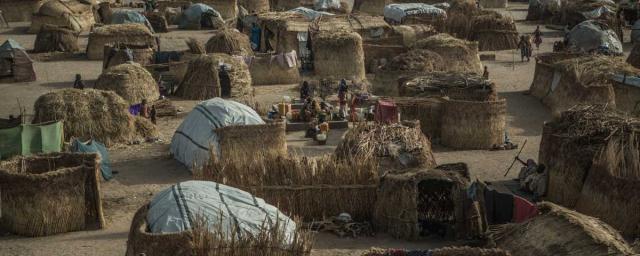
In Nigeria, Oxfam works to influence policy change in favor of those living with poverty and facing social, political, and economic exclusion. We also respond to humanitarian needs of the people in the North Eastern part of the country where insurgence had led to the loss of thousands of lives and rendered many people homeless.
Nigeria is the largest economy in West Africa, and the third largest in Africa. However, although Nigeria is considered to be a regional economic powerhouse, the levels of inequality in this country leave many needs unfulfilled.
Nigeria ranks 157 out of 189 countries on the Human Development Index (HDI) of the United Nations Development Programme (UNDP). Although it possesses the resources to end extreme poverty and even up the inequalities between rich and poor, women and men, it remains the country where the government is the least committed to reducing inequality in West Africa (based on the Oxfam’s Commitment to Reducing Inequality (CRI) Index 2019).
Among Nigeria’s population of nearly 200 million:
| 1 in 4 |
More than one in four (57 million) do not have access to safe water. |
| 2/3 |
Two-thirds (over 130 million) lack adequate sanitation. |
| 10 M |
Ten million children are out of school. |
| 112 M |
112 million live in extreme poverty with less than $1.90 a day. |
Oxfam in Nigeria
In Nigeria, Oxfam works to influence In favor of those living with poverty and facing social, political, and economic exclusion. We also work to boost civic engagement by providing platforms for citizen engagement to make policymaking more transparent and inclusive. We respond to humanitarian needs of the people in the North Eastern part of Nigeria where insurgence had led to the loss of thousands of lives and rendered many people homeless.

We help improve the livelihoods of smallholder farmers and pastoralists by increasing their access to critical resources and building their capacity to work with government and the private sector to enhance food and nutrition security in Nigeria. We also help small entrepreneurs, especially young people and women, to grow, become more financially sustainable and have a greater social impact.
We empower Nigerian women to realize their full potentials, live free from violence and discrimination, participate in decision making, exercise their economic rights and bodily integrity to contribute to nation-building. We are striving for more justice for women in all our interventions in Nigeria.
We seek to ensure that socio-economic and political rights of Nigerians are guaranteed by working with citizens, institutions, and the private sector to promote transparency and accountability. This will ensure that the nation's huge earnings from the extractive sector, which form 80% of government revenues, translate to appreciable improvements in the living standards of Nigerians through effective and efficient use of public resources.
We support and deliver high-quality emergency life-saving interventions, and effective disaster management planning to ensure that fewer women, men and children in Nigeria die or suffer from disease, insecurity and deprivation in humanitarian emergencies. We deliver water, sanitation and hygiene, food and livelihoods assistance, and protection programs to ensure that people are free from violence and coercion, and take control of their own lives in dignity.